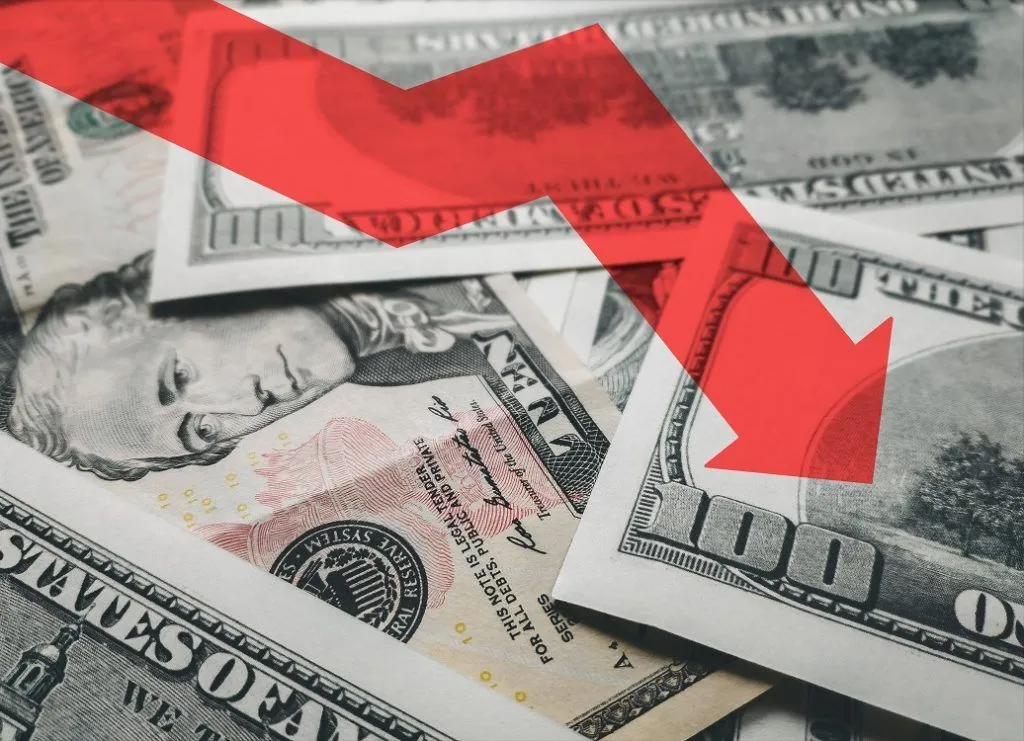What Is Devaluation?
Devaluation is the deliberate downward adjustment of the value of a country’s money relative to another currency, group of currencies, or currency standard. Countries that have a fixed exchange rate or semi-fixed exchange rate use this monetary policy tool. It is often confused with depreciation and is the opposite of revaluation, which refers to the readjustment of a currency’s exchange rate.

KEY TAKEAWAYS
- Devaluation is the deliberate downward adjustment of a country’s currency value.
- The government issuing the currency decides to devalue a currency.
- Devaluing a currency reduces the cost of a country’s exports and can help shrink trade deficits.
Understanding Devaluation
The government of a country may decide to devalue its currency. Unlike depreciation, it is not the result of nongovernmental activities.
A country may devalue its currency to combat a trade imbalance. Devaluation reduces the cost of a country’s exports, rendering them more competitive in the global market and increasing the cost of imports. If imports are more expensive, domestic consumers are less likely to purchase them, further strengthening domestic businesses. Because exports increase and imports decrease, there is typically a better balance of payments because the trade deficit shrinks. In short, a country that devalues its currency can reduce its deficit because there is greater demand for cheaper exports.
Devaluation and Currency Wars
In 2010, Guido Mantega, Brazil’s Finance Minister, alerted the world to the potential of currency wars.1 He used the term to describe the ongoing conflict between countries like China and the United States over the yuan’s valuation.
While some countries don’t force their currencies to devalue, their monetary and fiscal policy has the same effect, and they remain competitive in the global marketplace for trade. Monetary and fiscal policies that have a currency devaluing effect also encourage investment, drawing in foreign investors to (cheaper) assets like the stock market.
On August 5, 2019, the People’s Bank of China set the yuan’s daily reference rate below 7 per dollar for the first time in over a decade. In response to new tariffs of 10% on $300 billion worth of Chinese imports imposed by the Trump administration, this was set to go into effect Sept. 1, 2019. Global markets sold off on the move, including in the United States, where the Dow Jones Industrial Average (DJIA) lost 2.9% on its worst day of 2019 up to that date.
The Trump administration responded by labeling China a currency manipulator. This was just the latest salvo in the U.S.-China trade war, but indeed not the first time China had devalued its currency.
The Downside to Devaluation
While devaluing a currency may be attractive, it can have negative consequences. Increasing the price of imports protects domestic industries, but they may become less efficient without the pressure of competition.
Higher exports relative to imports can also increase aggregate demand, leading to higher gross domestic product (GDP) and inflation. Inflation can occur because imports become more expensive. Aggregate demand causes demand-pull inflation, and manufacturers may have less incentive to cut costs because exports are cheaper, increasing the cost of products and services over time.
Real-World Examples
China has been accused of practicing a quiet currency devaluation and attempting to make itself a more dominant force in the trade market. Some accused China of secretly devaluing its currency to revalue it after the 2016 presidential election and appear to cooperate with the United States. However, after assuming office, U.S. President Donald Trump threatened to impose tariffs on cheaper Chinese goods partly in response to the country’s position on its currency. Some feared this might lead to a trade war, putting China in place to consider more aggressive alternatives if the United States followed through.
President Trump placed restrictions on Chinese goods, including tariffs on more than $360 billion of its imports. However, according to The New York Times, the COVID-19 pandemic that hit hard in 2020 caused the strategy to backfire. Global supply chains did not return to the United States. China’s manufacturing position was strengthened as consumers worldwide were locked down, remained at home, and resorted to buying Chinese-manufactured goods through online e-commerce sites.
Egypt has faced constant pressure from U.S. dollar illegal market trading, which began following a foreign currency shortage that hurt domestic business and discouraged investments within the economy. The central bank devalued the Egyptian pound in March 2016 by 14% compared to the U.S. dollar to mitigate the underground market activity.
According to a Brookings article, the International Monetary Fund required the pound’s devaluation before allowing Egypt to receive a $12 billion loan over three years. The Egyptian stock market responded favorably to devaluation. However, the illegal market responded by depreciating the exchange rate of the U.S. dollar to the Egyptian pound forcing the central bank to take further action.












